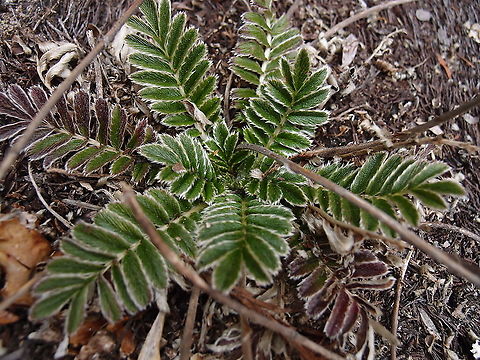
Appearance
Herbaceous, rosette, acaulescents, without visible stems. Leaves pinnate, with 14 to 22 leaflets, 1.5 to 2.5 cm long, glaucous-tomentose on the underside, short petioles.Racemose inflorescences, with the flowers densely agglomerated, from light green to green-white; hypanthium covered with recurved spines; the calyx with (3-) 4 (5-) lobes; corolla absent; stamens 3 to 5. The fruits are achenes inserted in the hypanthium, green when ripe.
It is recognized by its densely glaucous-tomentose leaflets on the underside.
Naming
Matapiojos, Pelamenudo, Quin felpa.Distribution
Its native range is W. South America. From Costa Rica to Colombia, Venezuela, Bolivia and Ecuador.In Costa Rica is Found in Central Volcanic Mountain Range and Talamanca Mountain Range, at elevations of 3,000 to 3,800 m.
Behavior
It grows to dense populations in open or disturbed areas in the moorlands. They are difficult plants to eradicate due to their long and penetrating roots.Habitat
Disturbed areas, moors, grasslands.Uses
It is used to treat unspecified medicinal disorders and as an indicator plant.References:
Some text fragments are auto parsed from Wikipedia.
http://powo.science.kew.org/taxon/urn:lsid:ipni.org:names:719970-1http://www.plantillustrations.org/species.php?id_species=6107
http://www.crbio.cr:8080/neoportal-web/species/Acaena%20cylindristachya
http://herbario.jbb.gov.co/especimen/7756